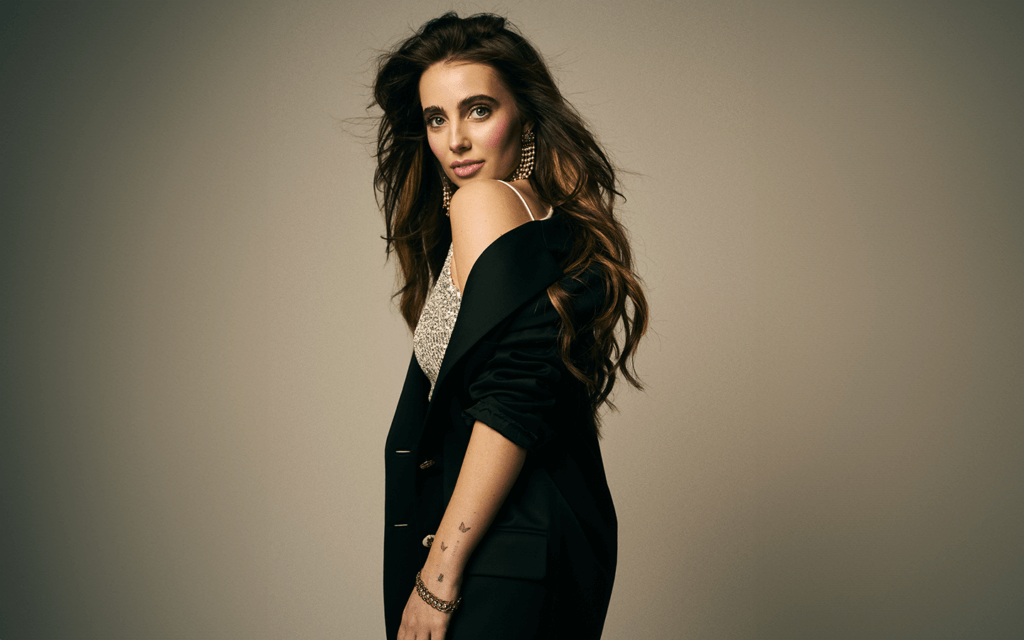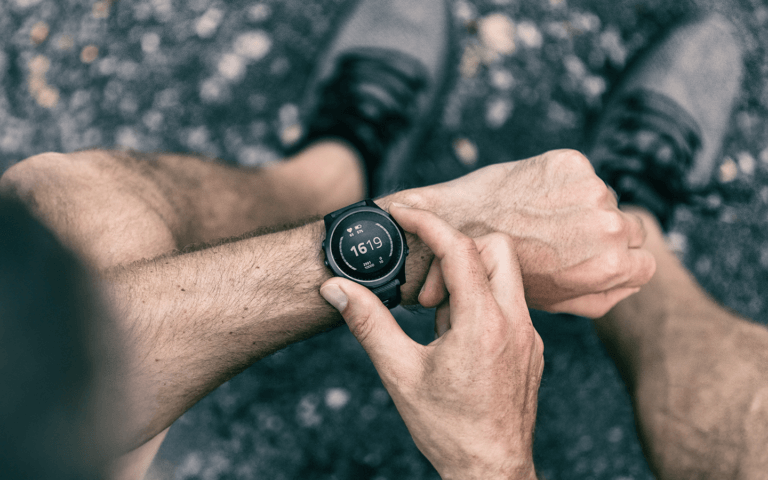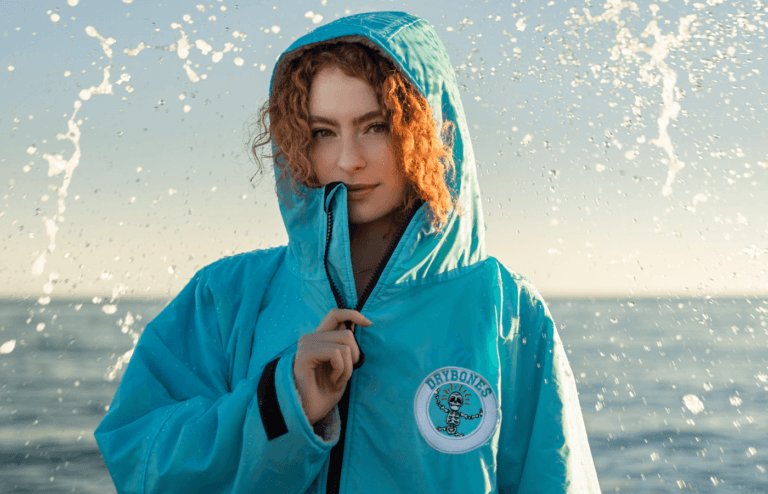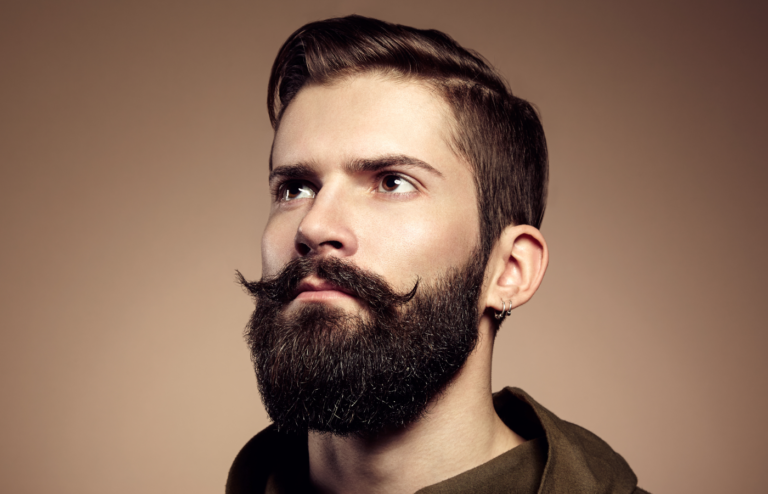Lexi Hensler embodies a welcoming glow of positivity in a world of negativity, doomsday outlooks, and a persistent flood of bad news.
Still only 25, the California-born social media starlet has enjoyed a meteoric rise online over the last decade, with her YouTube, Instagram and TikTok boasting a combined following of almost 20 million.
Life hasn’t been plain sailing, however. An open advocate for children’s mental health and those suffering from depression and anxiety, she has been incredibly open about her own struggles, often reflecting on traumatic experiences in an attempt to educate and start a conversation around topics often shrouded in secrecy.
The founder of ‘HUGZ,‘ a brand that sells weighted stuffed animals, Lexi dreams of a world where we will finally understand how to prevent mental health complications before they get a foothold on children, fuelled by her personal trauma and inspired by her mother who works at Rady Children’s Hospital in San Diego.
Fame hasn’t swept her feet from the ground, with her self-deprecating videos oozing with awkward humor firmly cementing them in place. This is the same Lexi who volunteered to be a model for a photographer buddy in high school, not knowing it was the start of a meteoric rise to online fame.
This is the same Lexi who was struck with the enormous wave of perspective on life possible at the age of 17 when a severe illness left her close to death.
Had that not happened, it might have been different with the beauty of hindsight. The sliding doors moment shifted Lexi’s world, opened her eyes, and set her on a mission to follow her dreams and passions and conquer fears and adventures previously consigned to impossibilities.
Muscle and Health spoke to one of TikTok’s leading lights about her past, present, and future plans and views on mental health.
MH: You grew up in California. Tell me about growing up there with your parents and your early memories when you were acting, singing and doing stand-up comedy.
Lexi Hensler: “I had the opportunity to work in a local theatre and get so much experience and discover how much I loved acting, singing and stand-up comedy. But also, it was a bit rough growing up there in the sense that there was a lot of bullying and violence, some things that some high schools don’t experience. Sometimes I would tell my friends about some stories there, and they’re like, “That stuff doesn’t happen here.” But it shaped me a lot into the person I am now.”
MH: You were a guest on the ‘The Squeeze’ podcast hosted by the Lautners, where you said at the age of six, you started to feel slightly different. Was that the first time you realized it could be some anxiety or some form of depression, and was that the first time you’d experienced that?
Lexi Hensler: “Yeah, absolutely. When you’re so young, at six, you know that you feel weird and have these almost guilty thoughts of, “Why is this happening? It’s probably only me.” And that’s why I think it’s so important to talk about my journey and mental health because if I had known that, it wasn’t just me growing up. I had known that it was normal; that would’ve helped a lot, especially with those feelings of guilt, resentment, confusion, and anger about what was going on in my mind and body. So that’s why I want to do what I do now.“
MH: At that time, around the early 2000s, that would have been never discussed. How far has that conversation come?
Lexi Hensler: “Yeah, absolutely. I’m so proud of the progress we’ve made. One of the positive things that came out of COVID – such a mass tragedy – is that it forced us to talk about mental health because we were all put in such a position of isolation which is so incredibly bad for you. It forced us to have this conversation, to bring it to the forefront, reach out to other people, and have that sense of community.
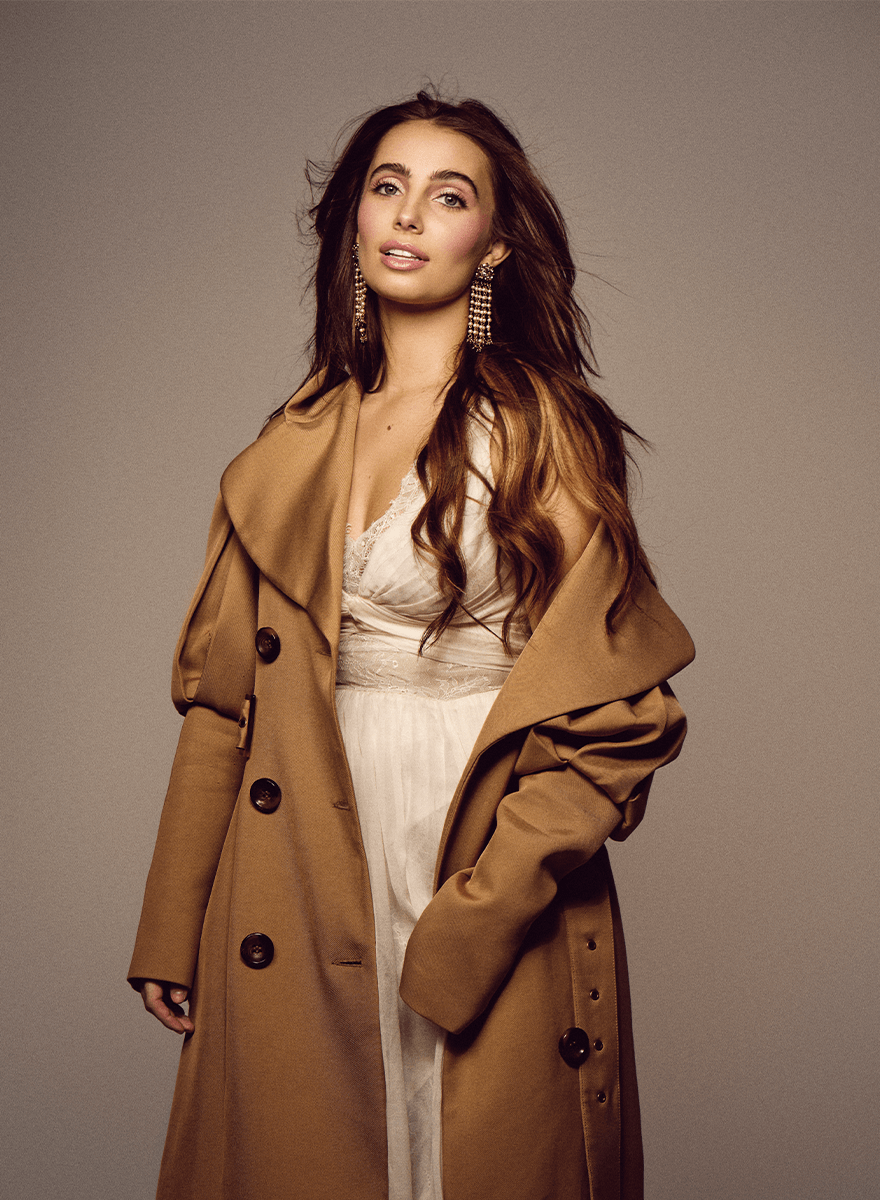
“Another bright side that comes out of social media, despite some downsides, is connecting and community with people. I love that I have friends across the world that I can connect with, and maybe someone in India is going through the same thing, but they’re not in a country where it’s as talked about and supported yet, but they can have access to the research done in other countries. All of those positives, whether it’s posts on Instagram, therapy TikToks, there’s access to so much more now.”
MH: At 17, you’re in Rady Children’s Hospital. You had a severe illness, and you’ve said that that was a time when there was a lot of self-reflection, and it gave you a bit of perspective on life, and ultimately that’s when you chose to go down the path you want to go down. In a way, was that your sliding doors moment in your life where it could have gone one way, but it went that way because you got that perspective, as bad of a situation as it was?
Lexi Hensler: “I think there were a few points in my life where I came to a T, or across two roads, and I was like, “Okay, I could go down the path that a lot of my friends are going down, which is drugs, violence, jail. Or I could go towards wanting a better future.” And then I found myself in the hospital, which I don’t think any 17-year-old really sees coming. We all make plans to be grandparents one day. We’re like, “Oh, we’re going to save for retirement,” that really opens your eyes to how fragile, precious and grateful every day is.
“I found myself lying there with a lot of time to think and watch baking shows. I realized that I was given a gift because it was a miracle that my mom was able to bring me in, and they were able to find out what was going on because I had ended up in the ER about five or six times, and every doctor just shooed me away. They didn’t know what was going on. In all fairness to them, in an ER, you’re supposed to triage someone and get them to help or get them out. So people should have looked into what was going on.
“Thankfully, we finally had the resources to investigate a little more, and we found out that I was pretty close to death. I was going into a heart attack. Luckily I was in the hospital, so they could stop it with medication. That was a huge turning point in my life where I was like, “Okay, if I get out of this, there’s so much I want to do. I don’t want to make excuses. I’m going to save every penny from the tip jar that I make at work, and I’m going to go see Hawaii for the first time.” And it spiraled into this bucket list.” Looking back, I’m thankful for it because it gave me a new perspective on life.”
MH: Regarding Instagram, do you remember your first-ever post?
Lexi Hensler: “Oh man, I don’t remember. I remember it became a thing towards graduating high school. I posted a few photos with friends, and one of my high school friends really wanted to be a photographer, and he’s like, “Well, I need practice. Can you model for me?” I said, “I don’t know how to model, but sure, I’ll stand there and try.“
“I just posted the photos, and it started to grow. It started to grow an audience, and I started meeting people – which was so much fun – and working with them. I quickly realized it was also a business and a way for mental health outreach. So it was a win-win-win.”
MH: Was there a specific point when you were growing your Instagram channel when you thought it could take off and something you could make a career from?
Lexi Hensler: “It’s funny because I had half my brain thinking, “Oh my gosh, light bulb. This could be such a great opportunity to accomplish so many things and dreams,” one of which is having a business or something to do with the mental health fight. The other half of me, the self-sabotaging half, is like, “You’re never going to make it. It’s never going to happen. This is just fun.” But I didn’t expect to be where I am now. I thought a few thousand followers could be really cool, but I didn’t see this happening.”
MH: You then went into YouTube. Can you remember filming your first video – a Q&A with viewers – and were you nervous about going on camera and putting yourself out to the world?
Lexi Hensler: “I was never really nervous. I don’t know why talking to a camera felt so normal to me, but my friends pushed me into doing YouTube, but initially, I thought no one would watch my videos. I just decided to film one day with them, and I had so much fun doing it that we just kept filming. The numbers didn’t really feel real. I still don’t think they’re real. I feel like it’s this little small community, but it’s something I love doing so much and am passionate about. I can’t really imagine not doing it at this point.“
MH: When did TikTok first come to play for you, and do you value TikTok as your most valuable platform because of the near-10 million followers?
Lexi Hensler: “It was hard to wrap my head around such a short form of video when I was used to filming these super long videos. It took me eight hours to film a YouTube video and then crush it in 10 minutes. So I was like, how should I film a short video? It almost seemed too easy. But then I started experimenting with it and finding my groove, which was enjoyable. I’m definitely still more passionate about YouTube. Filming those videos is what I love the most.”
MH: What impact did getting your dog, Benji, have on your life, both mentally and physically?
Lexi Hensler: “The best impact in every way. There are days that he’s literally saved my life. During Covid, I was alone with him, and I couldn’t have imagined being alone. There are days when I feel so alone because I think life can be lonely, and we all have our stuff going on, and sometimes it’s hard to reach out to people. Even when I last want to go outside and get off the couch, I have a life to take care of, so I have to do that. It’s funny because you always feel better after because it’s so good for your brain to go outside, get fresh air, get vitamin D, and go on a walk. Their studies on doing a brain scan before and after a walk and what that does for you are incredible. He saved my life in a million different ways. It’s crazy.
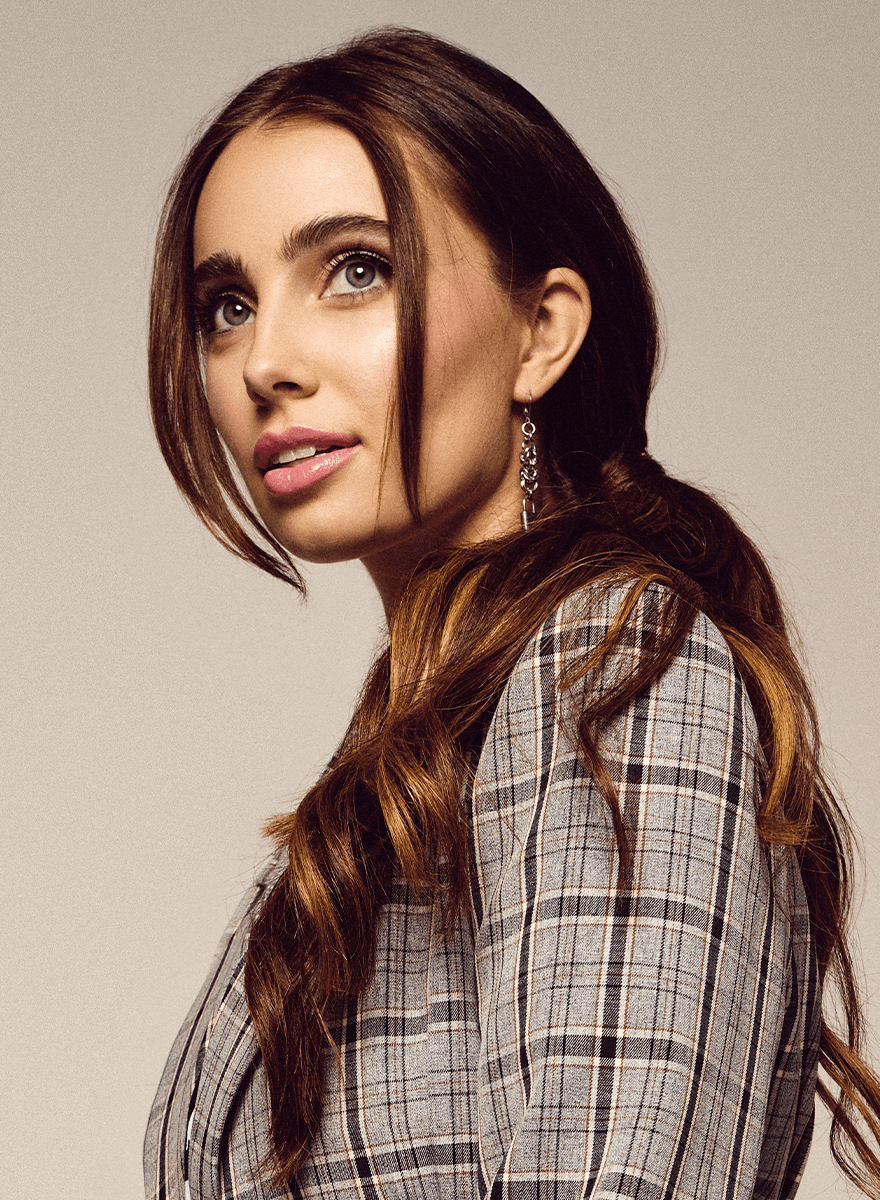
“Happiness, too, sometimes is just about finding purpose. Some people think their goal is to make the most money, but your aim is really, are you caring for another life? Are you making someone’s day? Are you contributing something to society? Finding those purposes, like me making funny videos, hoping that someone can laugh at the end of a hard day. That’s what brings me a lot of happiness.“
MH: How would you, in a nutshell, sum up the intention of your content and what you want your audience to get from it?
Lexi Hensler: “I really want to give people a gift because it can take them away from whatever they’re going through, whether they want to laugh, cry, or just be distracted. When I was in the hospital, watching baking videos every day was the thing that kept me going, and I was able to take my mind off something. But movies, TV, and YouTube; gives you that gift and just that sense of relief in a way, and relaxation almost.
“But also, I love that I can show these cool things that people may never know about. An underwater hotel, an igloo hotel, these really cool animals. You can swim with sharks, and they’re such a misunderstood animal. I hope people get both of those things out of my videos.“
MH: You said there are negatives and downsides to social media. What are the main negatives you see, and from when you started social media, how do you think it’s developed since you started?
Lexi Hensler: “It’s human instinct to compare yourself or see someone who looks like their life is perfect, and having it together and feeling down on yourself. As social media has advanced and there’s AI, there’s Space Tune; sometimes, you must check yourself and realize that might not be entirely realistic.
“I have luckily grown older and more mature with social media, so I’m now at a place where I can recheck myself and know it’s okay. We’re beautiful in different ways. We have other things going for us. That’s cool. I can appreciate that and not let that affect my self-worth. I know Instagram talked about taking away likes because it had such a negative effect on people. They were comparing their value to likes. But I think, if anything, social media challenges us to be more in touch with ourselves, our values, and our mental health.
“There’s obviously a lot of downsides to social media, but there’s a lot of upsides as well. Being able to get information about mental health and have a community with people. My best friend is in Australia, and I haven’t seen him since before Covid, but I can still talk to him, and he’s one of the number one people that’s been there for me when no one within an hour of me has been. So, you could focus on the ups, take it with the downs, like everything in life.”
MH: You’ve got your own brand, ‘HUGZ,’ where a portion of the proceeds are donated to ‘Your Mom Cares,’ a non-profit organization that provides resources and support for children’s mental health. Do you feel so strongly about children’s mental health because when you were six, you didn’t have the permission, you didn’t have the understanding, you didn’t have the insight? Are you passionate about giving back what you didn’t have?
Lexi Hensler: “I think so. I think a big part of it is understanding how much I went through growing up with mental health, and there wasn’t really any system in place for it and any help, any hospital help, which there is, thankfully, now. Kids have it so incredibly hard. They’re growing up, not old enough to understand what’s going on, and don’t have the coping skills that we adults have. They could be going through bullying at school, and then it could follow them home on the internet, then family troubles at home.
“Kids have so much packed against them, and they’re still expected to get good grades and be perfect sometimes, and they’re not always fully allowed to just be kids nowadays, especially with all of these pressures on top of them that are aging them faster. Kids nowadays look older than when I was a kid.
“Your Mom Cares is an organization where I know the owners; I’ve worked closely with them. I know exactly where that money’s going and how helpful that money is. It’s incredible to see the work that they’ve been doing. My mom works in a kid’s hospital, Rady Children’s, where they also work with Your Mom Cares, and they’re constantly working to innovate new programs to even screen for mental health early before it gets to a point where it’s much harder to treat. I’m excited. The next few generations will get much more out of the system than we did.”
MH: You obviously have so much going on, but where do you see your future now?
Lexi Hensler: “It’s funny because my life goal right now is to move south of France and start a ranch, get some goats, ducks, and just vibe out there. Hopefully, there will be some travel videos, but this year will also be the year of releasing music. It’s something that I am so passionate about, but I was so scared to do it.
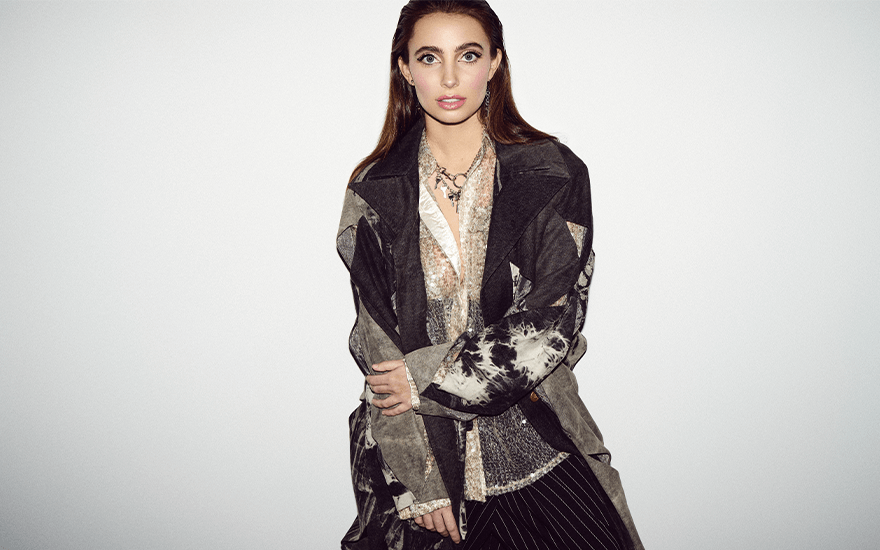
“I can talk in front of a camera all day, but when it comes to singing in front of people, not so much. But the same thing happened with a lot of the bucket list stuff I’ve done. I don’t want to look back and be like, I’m bummed that I never tried. I’d rather fail and know that I tried. So that’s the game plan for now, but we’ll see. Obviously, life has its own plans.“
MH: From your bucket list, what’s been the favorite one you’ve ticked off, and which one are you looking forward to ticking off the most?
Lexi Hensler: “Flying a helicopter was so freaking incredible. I am totally inspired to get my pilot’s license now. It was so much fun. It was funny because I didn’t realize he would entirely take his hands off the control and let me fly past the Hollywood sign over all these people. But I did well. I did well. Everyone was safe, apparently.
“I’m definitely most excited to go to Africa. I’ve wanted to go since I was a kid. I have yet to go, but I really want to see those animals up close and meet people and experience their beautiful culture there. So, that’ll happen soon.”

